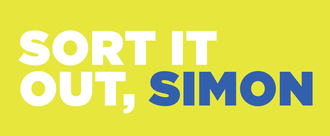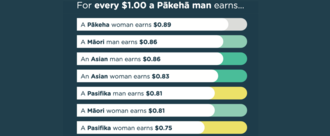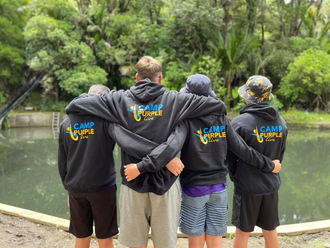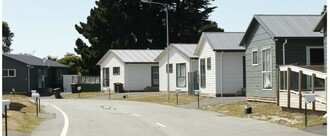-
TVNZ, pull the FBoy Island NZ show immediately!We believe that New Zealand can be a country where all women are safe, seen and celebrated. As a broadcaster, you have a responsibility not to perpetuate stereotypes that have a high likelihood of harming women. It is 2022 and we deserve and demand better. Simon, you’re better than this, TVNZ is better than this. Sort it out, Simon. Pull FBoy Island NZ today. Tania Domett, Erin Jackson and Angela Meyer for Project Gender8,088 of 9,000 SignaturesCreated by Project Gender

-
Better protections for bus drivers in AotearoaI am a FIRST Union delegate and bus driver at NZ Bus, and I am launching this petition calling for three important protections for bus drivers at work following a spate of violent attacks by passengers around the country, including being assaulted myself this month at while work in Auckland. I am a trained health and safety representative, and recently I previously issued my employer with a Provisional Improvement Notice (PIN) following increasing assaults on his colleagues. The risk of assault by passengers seems to have increased in recent years, especially during and immediately after the Covid-19 pandemic. My fellow bus drivers have been physically harmed, subjected to racist abuse and just about everything else you can possibly think of going wrong involving passengers. Driving a bus is about much more than just driving the vehicle. Drivers in other transport jobs like freight and logistics don’t have the added stress and responsibility of making sure passengers are safe and on time to their locations, and they don’t have to deal with the consequences of antisocial behaviour and fare evasion. Other transport workers often paid much more than us bus drivers are. Bus drivers are not punching bags. We are not a person to take out your frustration on or to blame for wider grievances about public transport in your city. We are having to take leave from work, lose income, attend hearings and deal with police over the assaults that happen to us on a weekly or even daily basis, and it is not good enough. We bus drivers are sick of doing their best for passengers and being verbally, racially and physically attacked for it. All bus drivers deserve to feel safe on the job, and feel respected at our place of work. After all, we're carrying the most precious cargo — the people of our community.1,492 of 2,000 SignaturesCreated by FIRST Union
-
KiwiSaver Parity ProjectKiwiSaver is a crucial tool in saving for retirement and any flaws that create the potential for inequality must be addressed. The voluntary Contribution Sharing Scheme would allow couples (whether married or de facto) to share KiwiSaver contributions to ensure that the person foregoing paid work to have and/or care for children, earning less due to family responsibilities, or earning less due to various pay gaps compared to their full-time working partner, is not financially disadvantaged in retirement. This would benefit all families, which come in different shapes and sizes, and would particularly bring retirement parity to women who have lower KiwiSaver balances due to the gender pay gap and who typically are the ones who take time out of the workforce to have and care for children. • The Te Ara Ahunga Ora Retirement Commission has reported in 2022 the average KiwiSaver balance for women is 20 percent lower than for men(1). • A one-year parental leave break is expected to cost the average KiwiSaver member $5,100 to an individual’s KiwiSaver balance based on a 35-year-old earning $80,000 per year. That can compound up to $16,000 by the time someone reaches the age of 65 and this will grow exponentially over the years taken off or working part-time to care for children(2). • More often than not, women are paid less than men and those lower salaries translate through to lower KiwiSaver balances (Stats NZ reported the gender pay gap for the June 2022 quarter was 9.2%)(3). I see the impacts of this issue in my own family situation. My wife’s KiwiSaver balance is less than 40 percent of my own, primarily because she has taken time out of the workforce to have and take care of our children. It is not fair that she be penalised when her taking time off work for maternity and childcare has been of great benefit to us both. Introducing this Contribution Sharing Scheme is a relatively simple change that can make a massive difference to people’s lives. And this is not a world first: a similar type of scheme already exists in Australia and has been extremely successful. Sign the petition to ask the Government to address this systemic flaw in the KiwiSaver system, and reduce inequality in retirement savings. Sources: 1. Te Ara Ahunga Ora Retirement Commission (https://retirement.govt.nz/news/latest-news/new-data-reveals-for-the-first-time-largest-breakdown-of-kiwisaver-balances-across-all-ages-and-genders) 2. Based on a 35-year-old earning $80,000/ year contributing 3% of their salary investing in a growth fund up until they turn 65 3. Stats NZ - June 2022 quarter gender pay gap (https://stats.govt.nz/information-releases/labour-market-statistics-income-june-2022-quarter)933 of 1,000 SignaturesCreated by Rupert Carlyon

-
Ensure young people get paid fairly: Make minimum wage the same for ALLNo matter how old we are, we deserve to be paid fairly for our work. But right now the law in Aotearoa allows young people under 16 to be exploited. Ensuring youth are paid fairly is important due to the rapidly changing economic situations we face as a nation. Living costs are soaring, with food alone increasing 8.3% in the last year.(1) Young people are now beginning to work from a younger age to support themselves or their whanau. Under 16-year-olds are doing the same work as people 16 years and over yet do not legally have to be paid the minimum wage. Employers can currently pay under 16’s as little as they please, meaning youth can be exploited, overworked, and underpaid as there is no law to protect these rights or remove age-based discrimination.(2) References: 1. https://www.newshub.co.nz/home/money/2022/09/cost-of-living-grocery-bills-keep-going-up-as-food-prices-grow-by-8-3-percent-statistics-nz-says.html 2. https://www.business.govt.nz/hiring-and-managing/hiring-people/minimum-pay-rules/123 of 200 SignaturesCreated by Hannah McAdie
-
Close the gender and ethnic pay gaps: Make pay gap reporting mandatory for businesses in New ZealandThe soaring cost of living is taking its toll on families across Aotearoa, made worse as winter’s heating bills also begin to bite on household incomes. Many women and people in our Māori, Pasifika and other ethnic communities earn much less than they would if they were a Pākehā man. That’s not fair. It’s not the Kiwi way. The playing field is tilted against too many. That means the challenges of making ends meet at a time when the weekly grocery and petrol bills are a growing burden for many. Requiring big employers to report pay gaps will help reduce child poverty and help end discrimination that impacts on the nation’s wellbeing: the aspirations of Māori, of Pasifika; of other ethnic groups. Aotearoa, we're asking you to stand alongside us as we call for action on this important issue. Please add your voice to our call for urgent action. #NotAnotherWinter8,574 of 9,000 SignaturesCreated by MindtheGap NZ

-
Our children with Crohn’s disease and ulcerative colitis deserve the same care as adults!New Zealand has one of the highest rates of Crohn’s disease and ulcerative colitis (known as inflammatory bowel disease or “IBD”) in the world. These diseases are chronic and relapsing illnesses, characterised by sudden flares, emergency department visits, frequent hospitalisations, and, often, surgery. It is estimated that there are 20,792 New Zealanders with these diseases and the number is expected to double in the next ten years. Many of these patients are children. While almost every DHB in NZ funds adult IBD specialty nurses, there is not a single paediatric IBD nurse in all of New Zealand, not even at our largest paediatric centre, Starship Hospital. The issue of equity for this very vulnerable segment of our population needs to be raised. The critical role of the IBD nurse is to provide direct, immediate medical access and assessment to children when their disease suddenly flares. In these situations, it is prompt treatment which prevents lengthy hospitalisations and life-altering surgery. In addition, IBD nurses are the primary educators of both patients and caregivers, they manage immunosuppressive medications, ensure that preventative measures such as vaccinations and screening procedures are up-to-date, provide advice on diet, manage side effects of medications, and ensure compliance with treatment regimens. Not only does the work of the IBD nurse improve patient outcomes, but it significantly frees up time for their physician colleagues to perform other tasks. The impact of the IBD Clinical Nurse Specialist on patient outcomes and hospital costs has been well and repeatedly documented. A recent study reported in the British Medical Journal in 2020, demonstrated a one-third decrease in hospitalisations in the year following the addition of an IBD nurse to the GE team (P=0.002). Similar results were reported in a study from the Royal Adelaide Hospital in the Journal of Crohn’s and Colitis. Hiring a single nurse will not only save taxpayers tens of thousands of dollars, but, most importantly, will help keep our children out of the hospital and out of surgical theatres. It will ensure that our children have access to the same quality care that is routinely available to adult IBD patients in New Zealand and to other children throughout the world.1,558 of 2,000 SignaturesCreated by Richard Stein
-
End the Supermarket CrisisEveryone needs to eat and we all deserve to be able to afford healthy, nutritious food. But right now more and more families are having to go without because of the high price of food. Even basic items like vegetables, milk and bread are becoming expensive. There is a food cost crisis. The crisis is a result of successive governments allowing two supermarket chains, Woolworths and Foodstuffs, to dominate our food supply. The profits of these 2 big food chains are extraordinary. The Commerce Commission report showed that the profits of the duopolies are somewhere between 12.7 and 13.1%. (1). By international standards a normal rate of return should be 5.5%. (2). The Commerce Commission estimated that Foodstuffs and Woolworths combined are making about $430 million a year in excess profits. (3) It's not just customers they’re short changing either, the people growing and supplying food to the supermarkets are left with little option to negotiate fairer prices for their produce. One supplier reported that “We have two choices 1) sell to them under their terms 2) don’t sell to them at all”.(4) We all want to be able to trust our supermarkets to deliver us decent food at a decent price. But right now, it is clear that these two supermarket giants cannot to be trusted with the reins to our food supply. Our government needs to step in and create legislation to ensure our food system is fair and that families can keep food on the table. We need the Government to take urgent and definitive action to break up the supermarket duopoly. References: 1,2,3,4: Market study into the grocery sector, Commerce Commission, March 2022: https://comcom.govt.nz/__data/assets/pdf_file/0024/278403/Market-Study-into-the-retail-grocery-sector-Final-report-8-March-2022.pdf1,009 of 2,000 SignaturesCreated by Rene Jansen and Sonja Lamers
-
COVID in Our Prisons - An Open Letter to the Justice SectorOver the last two years, a crucial piece of the government response to the COVID-19 pandemic has been implementing health measures to contain and minimise the spread of the virus. This response has been met with widespread support because, as a country, we have understood that the health and wellbeing of every person in Aotearoa New Zealand is worth protecting. We address this letter to you now out of serious concern over the news of the spread of COVID-19 in prisons in Aotearoa. We call on you to apply a common sense health-based approach to better protect incarcerated people from COVID-19. This matter is urgent. As we are seeing, an Omicron outbreak within New Zealand prisons could easily overwhelm prison health-care services and put pressure on the rest of the healthcare services. Incarcerated people cannot meaningfully practice social distancing or have to forfeit what limited opportunity they have for leisure and social interaction to do so. The ongoing practice of double-bunking makes this even more difficult. Family or whānau visits are similarly restricted under the current Covid Protection Framework settings, adding further pressure and stress. The spread of COVID-19 in prisons particularly puts the health of older people, pregnant people, and those with relevant pre-existing health conditions (including COPD, respiratory illnesses and those with compromised immunity) at risk. There is an unacceptably high risk to Māori in prison, prison staff, whānau and communities from COVID-19. The Government must honour its obligations under Te Tiriti O Waitangi, and prevent this pandemic from further entrenching existing inequities for Māori. Reducing the number of people pulled into the justice system and being held in our prisons is essential to avoid further harm caused to Māori communities, individuals and frontline workers in the courts and prisons. This would also demonstrate the Government’s commitment to partnership and long-term wellbeing as promised in the Police strategy Te Huringa O Te Tai and the Department of Corrections strategy Hōkai Rangi. In signing this open letter, we are calling on the government to take action to protect people in the justice system from COVID-19, including through reducing the prison population, and ensuring effective health and safety measures are being implemented.420 of 500 SignaturesCreated by Kirsten Van Newtown
-
Free N95 Masks For All!Given the extra risk of exposure and infection because of the recently announced changes, it is becoming increasingly urgent that N95, P2, or equivalent quality masks are available and universally accessible. The Government has said that all healthcare and border workers have access to N95 or equivalent masks. But as the Government opens up the border and eases restrictions internally, the general public of Aotearoa New Zealand need quality masks. These masks are comfortable and breathable, they prevent transmission and save lives. Prevention of infection is the best course of action. Along with concern for the capacity of our health system, we are extremely concerned about the wellbeing of people who cannot social distance or properly ventilate their spaces at work, where they live, or where they study. Good quality masks are vital for our wellbeing. Masks For All! References: 1. https://www.stats.govt.nz/news/annual-inflation-hits-a-three-decade-high-at-5-9-percent 2. https://www.stuff.co.nz/life-style/homed/renting/127544121/rents-still-rising-as-supply-pressures-remain501 of 600 SignaturesCreated by Communities For Public Health
-
Open Letter: Better support for artists during the pandemicTens of thousands of people are now without any employment or income. I know in the past you have been a large supporter and advocate for the arts, and for this I thank you. I look forward to your response and more importantly your action.304 of 400 SignaturesCreated by Jazmine Mary
-
Save Our National Passenger Rail NetworkTrains connect communities and are an important part of climate change action. In late 2021, KiwiRail, announced end of same-day intercity services between Auckland/Wellington and Picton/Christchurch. They were to be replaced by luxury multi-day rail cruises. In a win for this campaign, KiwiRail recently reversed that decision and reinstated the Northern Explorer and Coastal Pacific effective September 2022. While this is a win for the travelling public, it is not the end of the issue. Much of Aotearoa New Zealand remains disconnected by from the rail passenger network and other services, like the the Capital Connection between Wellington and Palmerston North, remain under threat from underinvestment. This comes at a time when the Government has said it is committed to climate action and reducing inequality. Trains have connected friends and families for graduations, weddings, holidays, and business for generations. They have connected towns with the cities, and bought our country together. But a period of privatisation and decades of underfunding has limited the development and use of our national rail network. Trains have an important place in our future but it requires investment and planning from this Government. 🛤 Rail provides a more sustainable and climate friendly method of transport across the country. 🛤 Rail can invigorate the social and economic life of small communities by making them accessible to remote workers and tourists. 🛤 Trains can bring our diverse country together by connecting them to people and landscapes across wide distances. 🛤 Trains provide an accessible method of point-to-point transport for the elderly and disabled. 🛤 Trains can help take traffic off the roads and improve road safety. Rail is an important part of our past, but it should also be part of our future. Join the campaign to support the retention of a national passenger rail network.12,479 of 15,000 SignaturesCreated by Patrick Rooney

-
Call to action on housing in KāpitiThe 240 houses that Kāinga Ora has across the District are not enough to house long-term homeless people, let alone the growing number of people who are coming onto the list. This includes people who formerly rented in the private sector and who have been given notice to leave their homes as landlords have decide to sell their properties. Even if there was an adequate supply of private sector accommodation, the exorbitant rents mean that people simply can't afford to meet that cost. There is strong support for this call for action across the entire Kāpiti population. Young people who can't afford to leave home; families with children who move in with their parents because they can't afford the rent demanded; an 85-year-old who has lived in the same unit for 17 years being given notice because the landlord is going to rent to a family member; working single people who can't afford a one bedroom flat - the scenarios come thick and fast and we hear them all.422 of 500 SignaturesCreated by Donna Bridgeman





.png)

_(1).png)

_(Twitter_Post)(3).png)
.png)
.png)
